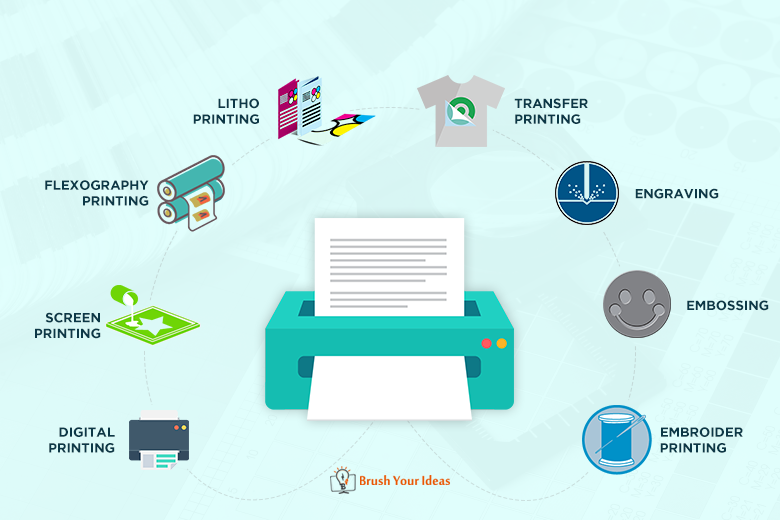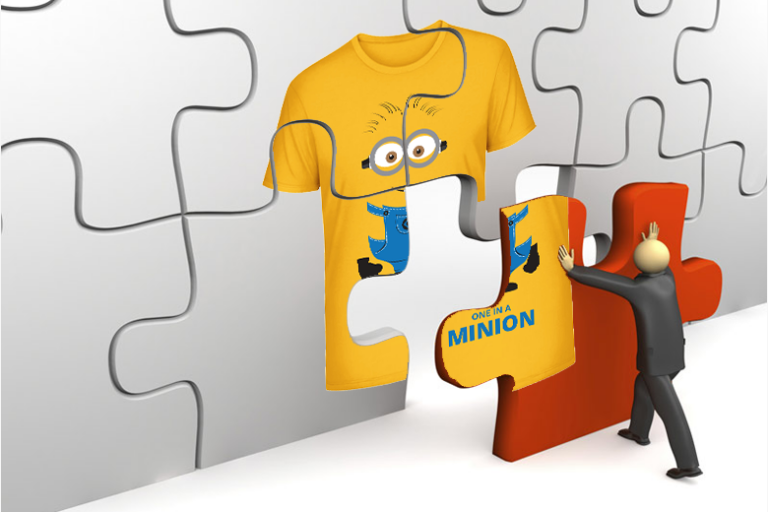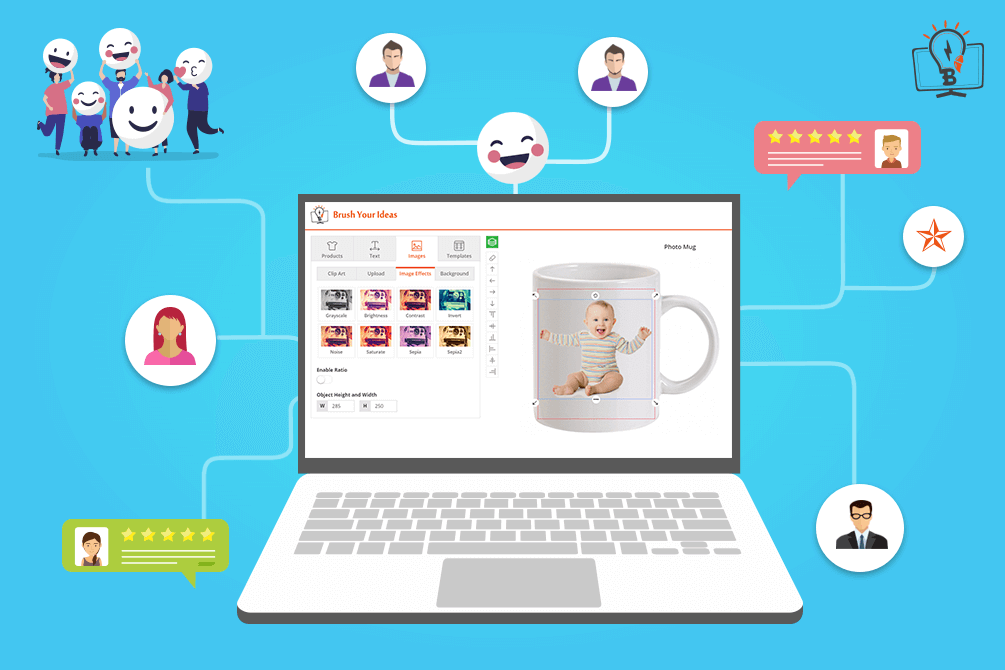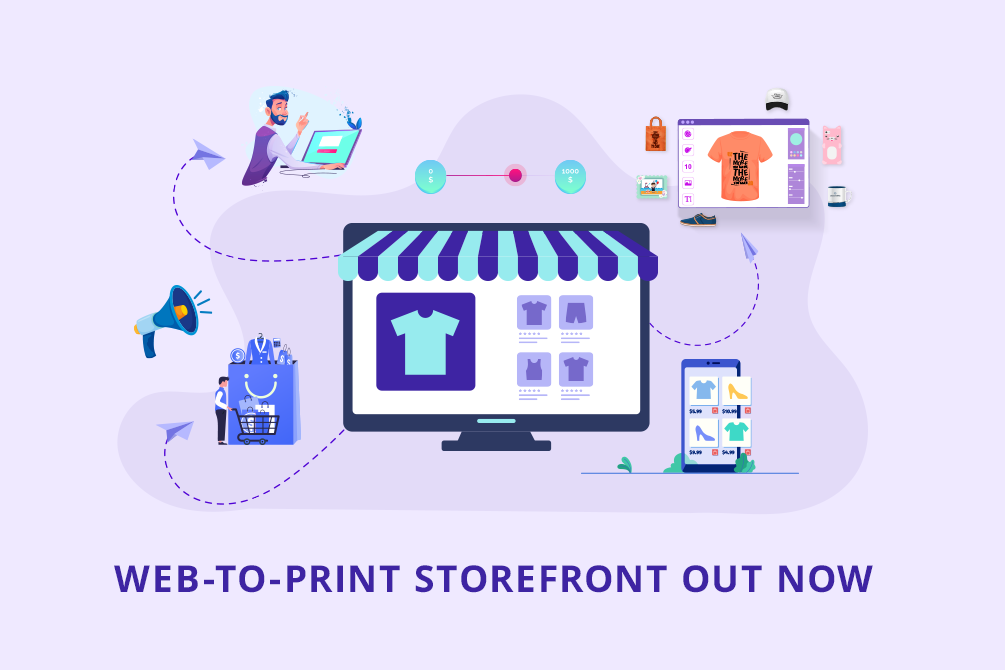Most of the online stores today offer personalized printed products for their customers. They also provide customers with the freedom to create their own design on a web-to-print software. Once the design is finalized, it is printed on various products and materials like t-shirts, mugs, mobile skin covers, business cards etc. For the business owners who have integrated web-to-print software to their store, it is important to know about the different methods of printing that are implemented by web-to-print industry.
Following are the 8 different printing methods used in the web-to-print industry.
- Digital Printing
- Screen Printing
- Flexography Printing
- Litho Printing
- Transfer Printing
- Engraving
- Embossing
- Embroider Printing
Here’s a detailed overview of each of the printing methods listed above.
1. Digital Printing
In digital printing, the digital images are reproduced on physical surfaces like cloth, plastic, magnets, labels, cardboard, film etc. This kind of printing is done by industrial and desktop sized printers. It is not necessary to keep yourself confined to single or two colours. Using a web-to-print software, you can also create a blend of different colours to match with the design. Digital Printing asks for an image resolution of 300dpi. If the quality of image is lower to that, it can result into mediocre printing quality.
2. Screen Printing
Screen printing utilizes different types of brightly colored inks and is often used for printing posters, t-shirts and other promotional items. Initially, screen printing was confined on silk materials. Nowadays, several different types of materials are used. During the screen printing process, a design is laid on the top of the screen. Thereafter, it is covered with photo emulsion and exposed to light. Due to its exposure to heat, the emulsion hardens up and the rest of it is washed away by leaving one kind of a stencil whose ink can be pulled by using a squeegee.
3. Flexography printing
This kind of printing is usually operated using web presses (not related to website) which prints on long and continuous rolls of paper. It doesn’t use standard plates used in offset lithography. It makes use of water based inks and rubber plates which dry very quickly and enable faster production rates. With faster drying, more effective results can be obtained on materials like plastic.
Launch your web-to-print store with us and take your print business to the next level! Start selling personalized products with a fully-functional website in less than 48 hours.
4. Litho Printing
Quite similar to Digital Printing, Litho Printing enables the printing of full colour prints on different types of physical surfaces. It also enables one to personalize promotional products that ask for multiple printing runs. High resolution artwork (of minimum 300dpi) is needed for this kind of printing.

5. Transfer Printing
Transfer printing is used when an image has to be applied on a curved or uneven surface. Mostly, it is used for printing on materials like porcelain and cloth like surfaces. Transfer printing asks for designs to have full digital images with vector and high resolution bitmap images which can be applied on an array of products.
6. Engraving
Engraving is considered to be the most expensive out of all the printing methods. Also, it takes a lot of time to get it implemented. When it comes to the making of royal invitation cards or business cards of high-ranking officials, engraving is the most commonly used printing method. The image is first engraved by a hand or machine on a metal plate. Thereafter, the engraved design is filled in with ink and a paper is pressed on it. As a result, a three-dimensional kind of crisp image can be obtained. Such results are difficult to produce by using other techniques.
7. Embossing
In this process, an impression of the design is created on a surface of the product. A fixed amount of pressure is given on the objects and marks are left after the pressure is released. There are two types of embossing:
- Blind embossing: The embossed mark is of the colour of the product itself
- Foil block: After the design is embossed, it is filled with metallic paints like silver and gold
8. Embroider Printing
Through embroidery printing, artwork can be recreated by decorating the fabric with designs that are stitched in strands of thread with a needle. A special printing machine is used for bulk production. One can provide colour references for this kind of printing. Embroiders try to match the colour hues which are nearest to the sample provided. With embroidery printing, it is better if you avoid an amalgamation of different colours.
As the web-to-print industry is widening its horizons, several ways of printing are being adopted by the online store owners. If you have an online store, it’s time you make an investment in web-to-print technology.
You can choose the type of printing that goes the best with your products and offering. Ecommerce business owners generally prefer a printing solution that is versatile and can enable the printing on different types of surfaces. Make sure you invest wisely so there are no embarrassments and regrets at a later stage.
All product and company names are trademarks™, registered® or copyright© trademarks of their respective holders. Use of them does not imply any affiliation with or endorsement by them.








Follow with us